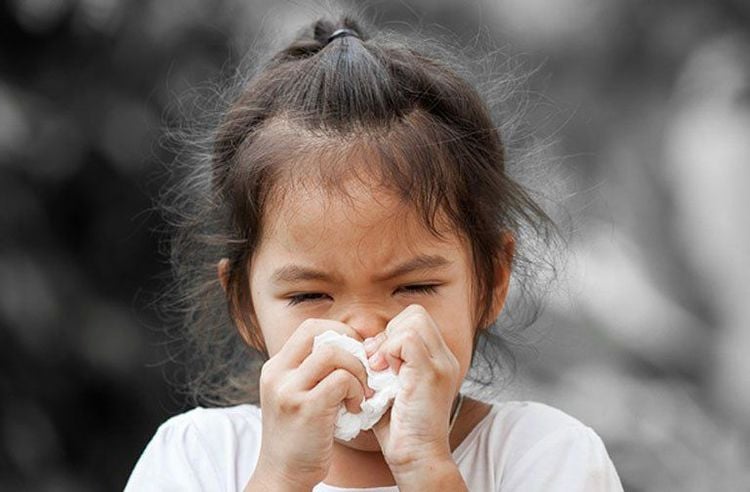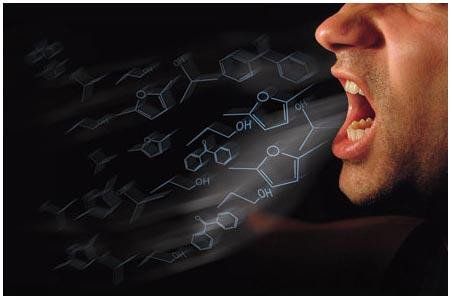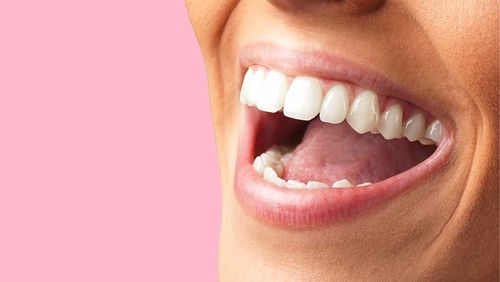This is an automatically translated article.
Posted by Master, Doctor Mai Vien Phuong - Department of Examination & Internal Medicine - Vinmec Central Park International General HospitalBad breath in children can be caused by a variety of reasons, from a buildup of bacteria to digestive and stomach problems. To be able to completely solve the problem of bad breath, it is necessary to take the child to the hospital to be examined by a specialist.
The mouth is like a petri dish full of bacteria . Experts believe that bad breath is a consequence of metabolic processes such as sulfur, volatile fatty acids, putrescine and cadaverine.
The bacteria that cause bad breath can live on the tongue, especially the tongue with many membranes or between the teeth and gums (periodontal area). For children, the cleaning of the mouth after eating and waking up is limited, which allows bacteria to exist and grow, causing bad breath.
Some possible causes of bad breath in children include:
1. Foreign body in the nose causes bad breath
Foreign objects such as peas or small parts of toys that get stuck in a child's nose can cause infection and lead to bad breath. This is a common cause that any parent needs to pay attention to when they have small children at home.
2. Nutrition and diet In daily meals, if parents let children eat some smelly foods such as garlic, onions, strong spices, it may cause bad breath. However, children with bad breath because of this cause can be cured quickly without any intervention, because after digesting and absorbing these foods into the body, the odor molecule will enter the bloodstream and then excavate. gradually excreted through the lungs, respiratory tract. In addition, foods rich in protein such as red meat, fish and cheese, and low-carbohydrate diets can also worsen bad breath in children.
Dry and hard foods such as chips, snacks, toffee and chocolate, if eaten a lot, can also get trapped in the grooves of the teeth, thereby increasing the microorganisms that cause tooth decay and consequent bad breath. odor.
3. Nose causes bad breath Chronic sinusitis can be the cause of bad breath in toddlers. Children with this condition will most likely have the following signs:
Persistent runny nose; A cough; Nasal congestion; Face pain. In addition, if a foreign object gets stuck in the nose, the child can also have bad breath. In this case, quickly contact the doctor for timely intervention to prevent possible infectious complications for the child.

4. Digestive tract disease is the cause of bad breath
Gastrointestinal (GI) causes of bad breath in toddlers, although uncommon, should be considered. Therefore, if your child has bad breath accompanied by symptoms such as: Abdominal pain, nausea, vomiting or heartburn, then immediately think of gastroesophageal reflux disease (GERD).In addition, Helicobacter pylori - a bacteria that can infect a child's stomach, causes uncomfortable symptoms and bad breath. Usually, if a child has bad breath caused by Helicobacter pylori, it will be accompanied by symptoms such as abdominal pain, nausea, vomiting or belching. Parents need to take their children to the hospital to be examined by a specialist, conduct some tests, and then get an appropriate treatment plan.
In addition to the common causes mentioned above, children can also have bad breath due to the habit of breathing through their mouth while sleeping. This is because breathing through the mouth can dry out the mucous membranes and lead to reduced saliva flow, the release of foul-smelling bacteria.
In short, bad breath in children can be caused by many different causes, from bacteria accumulation to digestive and stomach problems. If you are concerned about your child's bad breath, take him or her to see your pediatrician for the best advice on treatment options.
Currently, the Pediatrics Department at Vinmec International General Hospital is the address to receive and examine the diseases that babies and children are susceptible to, trusted by many parents. Vinmec brings satisfaction to customers and is highly appreciated by experts in the industry by:
Gathering a team of doctors and nurses in Pediatrics: Including highly qualified experts (professors, assistant professors). professor, doctorate, master), experienced, worked in big hospitals such as Bach Mai, 108.. The doctors are well-trained, professional, have a heart - reach, understand psychology. young. In addition to domestic pediatric specialists, the Department of Pediatrics also has the participation of foreign experts (Japan, Singapore, Australia, USA) who are always pioneers in applying the latest and most effective treatment regimens. . Comprehensive services: In the field of Pediatrics, Vinmec provides a series of continuous medical examination and treatment services from Newborn to Pediatric and Vaccine,... according to international standards to help parents take care of their baby's health from birth to childhood. Advanced techniques: Vinmec has successfully deployed many specialized techniques to make the treatment of difficult diseases in pediatrics more effective: neurosurgery - skull surgery, stem cell transplantation. blood in cancer treatment. Professional care: In addition to understanding children's psychology, Vinmec also pays special attention to the children's play space, helping them to play comfortably and get used to the hospital's environment, cooperate in treatment, improve the efficiency of medical treatment.
Please dial HOTLINE for more information or register for an appointment HERE. Download MyVinmec app to make appointments faster and to manage your bookings easily.
ReferencesAylikci BU, et al. (two thousand and thirteen). Halitosis: From diagnosis to management. DOI: 10.4103/2F0976-9668.107255 Bad breath – haliotosis. (n.d.). pedclerk.bsd.uchicago.edu/page/bad-breath-halitosis Bollen CML, et al. (2012). Halitosis: The multidisciplinary approach. DOI: 10.1038/ijos.2012.39 Children's dental health. (2017). cdc.gov/features/childrens-dental-health/index.html Karimi M. (2017). The causes of holitosis in children. omicsonline.org/open-access/the-causes-of-holitosis-in-children.php?aid=86743 Kinberg S, et al. (2010). The gastrointestinal aspects of halitosis. ncbi.nlm.nih.gov/pmc/articles/PMC2948765/ Leo G, et al. (2015). May chronic rhinosinusitis in children be diagnosed by clinical symptoms? DOI: 10.1016/j.ijporl.2015.03.011














